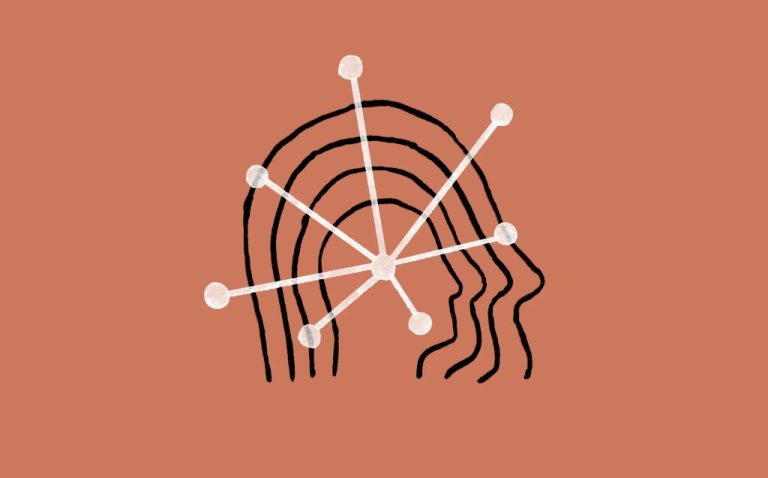Nightshade: The Innovative Solution to Protect AI Models from Copyright Infringement
AI Tool ‘Nightshade’ Aims to Protect Artists from Copyright Infringement
Researchers from the University of Chicago have introduced Nightshade, an innovative tool designed to disrupt AI models that attempt to learn from artistic images. Currently in development, Nightshade enables artists to safeguard their work by subtly modifying pixels in images, creating changes that are nearly undetectable to the human eye but create confusion for AI systems.
Many artists have raised concerns regarding the unauthorized use of their creations in training commercial AI products. These AI models depend on large datasets comprising multimedia content, which often includes text and images sourced from the internet. Nightshade provides a promising avenue for disrupting this data accumulation process.
When implemented into digital artworks, Nightshade can mislead AI models. For example, it can transform depictions of dogs into data that AI models misconstrued as cats. After exposure to just 100 altered samples, the model began consistently generating images of cats when prompted for dogs, showcasing the effectiveness of this technique.
This method not only confounds AI systems but also poses significant challenges to the inherent functionality of generative AI. By manipulating the clustering of similar concepts in AI, Nightshade can skew responses to specific prompts, ultimately diminishing the accuracy of AI-generated outputs.
Ben Zhao, a computer science professor and the lead developer of Nightshade, previously created Glaze, a tool that obscures digital art styles to deceive AI recognition. While acknowledging the potential for misuse of Nightshade, the focus remains on restoring control to artists and discouraging intellectual property violations.
The introduction of Nightshade creates a considerable hurdle for AI developers. Identifying and eliminating images embedded with poisoned pixels presents a difficult challenge due to the subtlety of the alterations. If Nightshade-modified images are introduced into existing AI training datasets, companies will face the task of removing these images and potentially retraining their AI models, complicating their operations further.
As the research undergoes peer review, Nightshade emerges as a promising tool for artists looking to protect their creative works.
Photo by Josie Weiss on Unsplash
Magistral: Mistral AI Challenges Big Tech with Reasoning Model
Mistral AI is taking on major technology firms by introducing a new reasoning model. This innovative approach aims to enhance AI capabilities and provide more comprehensive solutions to complex problems. As it enters the competitive landscape, Mistral AI seeks to distinguish itself with its unique offerings and intelligent systems.
The AI Blockchain: What Is It Really?
The concept of AI blockchain is gaining traction, raising questions about its true nature and potential benefits. This technology combines AI and blockchain to create decentralized systems that can enhance data security and integrity. Understanding its mechanics can provide insight into the future of digital interactions and trust in technology.
Apple Opens Core AI Model to Developers Amid Measured WWDC Strategy
In a recent move, Apple has chosen to open its core AI model to developers, signaling a shift in its strategy during the WWDC. This decision allows for more collaborative innovation and could lead to the development of new applications that leverage Apple’s robust AI frameworks.
Reddit Sues Anthropic for Scraping User Data to Train AI
Reddit has initiated legal proceedings against Anthropic, accusing the company of unlawfully scraping user data to train its AI models. This lawsuit highlights the growing concerns surrounding data privacy and the ethical considerations of using publicly available information for training AI technologies.
Artificial Intelligence and Machine Learning
The impact of machine learning on improving security for cloud-native containers is profound. With an increased reliance on cloud infrastructure, ensuring that these environments are secure has become imperative.
Transforming Business Applications with Innovative Machine Learning
Machine learning is revolutionizing various sectors, including finance and logistics, by enhancing business application functionalities and efficiencies. This technology is paving the way for smarter operations and decision-making.
AI and Bots in Music Industry Fraud
Recent reports suggest that artificial intelligence and bot technologies are being misused to artificially inflate music streaming numbers, raising concerns about integrity in the music industry.
The Advantages of Collaborating with Outsourced Developers
In the realm of artificial intelligence and development, outsourcing has emerged as a beneficial strategy. Companies gain access to specialized skills while optimizing costs and boosting productivity.
Recent Developments
Latest updates indicate ongoing legal actions and significant trends in AI development, such as record demand for AI chips reported by TSMC amidst tariff uncertainties. These developments highlight the rapid evolution and challenges within the tech landscape.
OpenAI’s Second Largest Paying Market Establishes Its Own Office: The South Korean Narrative
In a significant development, OpenAI is expanding its global footprint by opening an office in South Korea, recognized as its second largest paying market. This move aims to enhance its engagement with local businesses and developers, facilitating better support for AI-driven solutions and innovations.
South Korea’s technology landscape has been rapidly evolving, with a strong emphasis on artificial intelligence and machine learning. The establishment of an office there signifies OpenAI’s commitment to tapping into the burgeoning demand for AI technologies within the region. By localizing its operations, OpenAI seeks to foster collaborations that drive advancements in various sectors, including enterprise solutions and consumer applications.
This strategic expansion also reflects the growing importance of ethical considerations in AI development, particularly in a market known for its robust regulatory environment. By being present on the ground, OpenAI can better navigate local laws and societal implications surrounding AI technologies, ensuring a responsible approach that aligns with community values.
Ultimately, this development not only indicates OpenAI’s recognition of the South Korean market’s potential but also emphasizes its dedication to creating meaningful partnerships that enhance the overall technology ecosystem. The office is expected to serve as a hub for innovation, driving collaboration between OpenAI and local enterprises committed to advancing AI capabilities.







